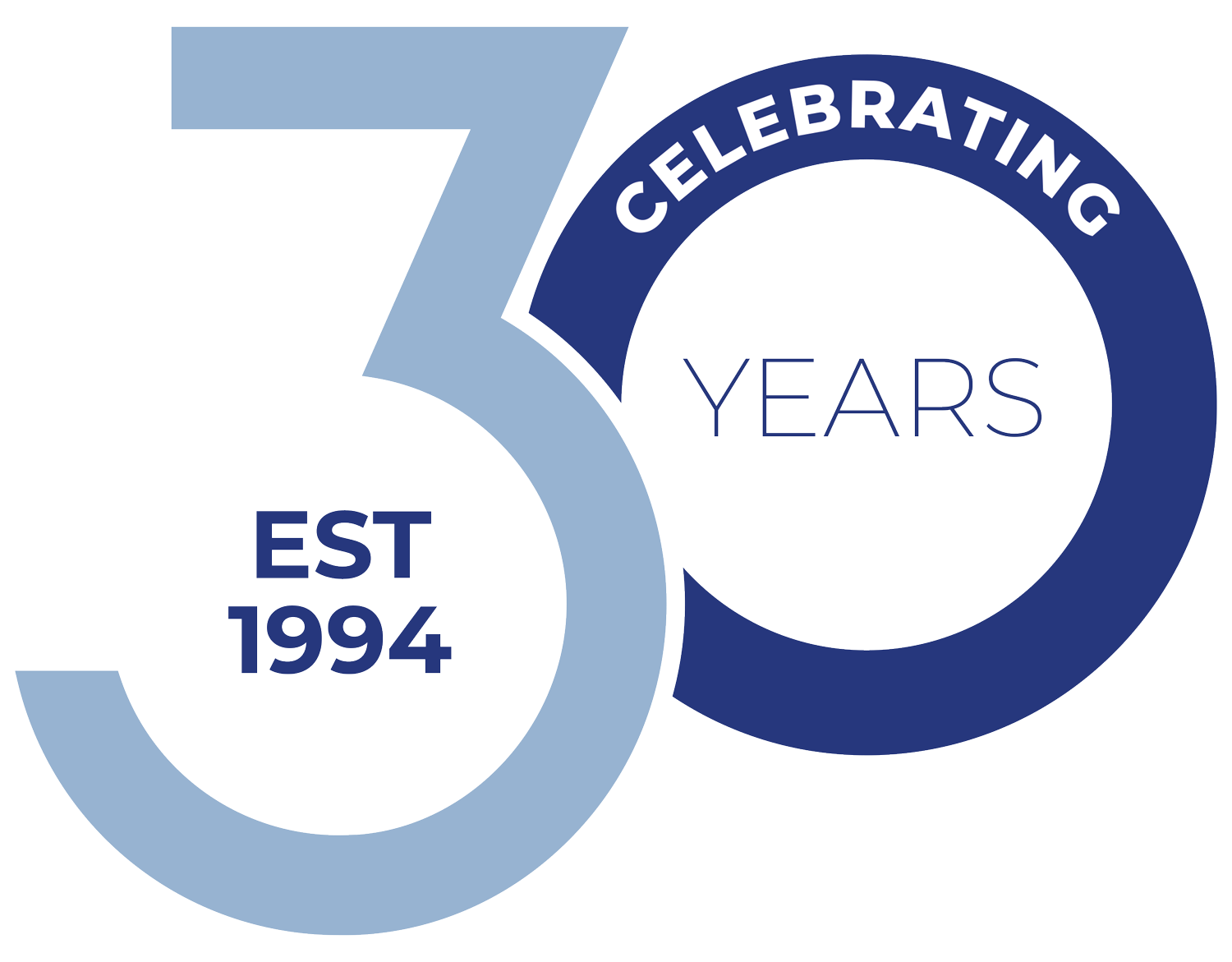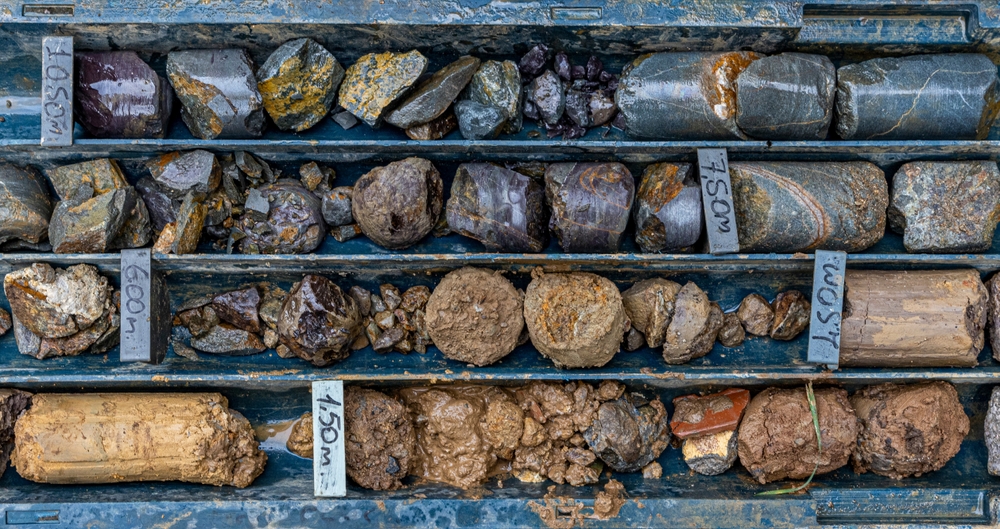For building owners, particularly those investing in commercial properties, a thorough understanding of the site’s condition is fundamental before any construction begins.
Ground Investigations and Drainage Surveys
This initial step includes ground investigations and drainage surveys to understand soil properties, groundwater conditions, and any subsurface structures.
Skipping these important assessments can lead to unexpected safety challenges, higher costs, and potential project delays—making early investigations a worthwhile investment for smoother progress.
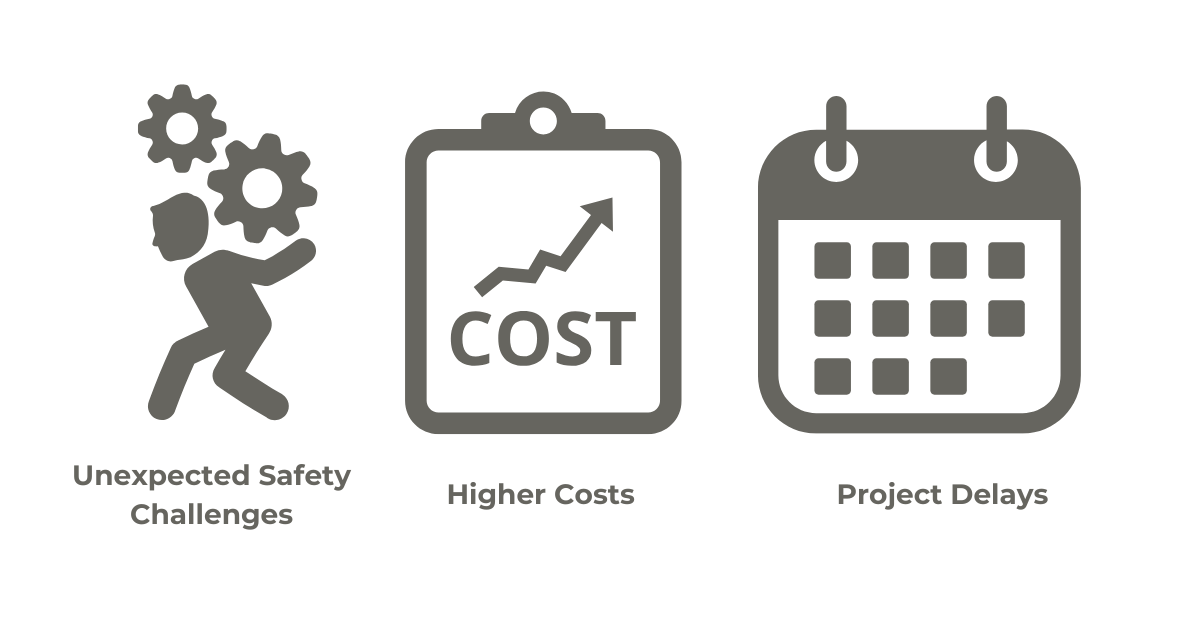
Why Ground Investigations Are Essential
Ground investigations provide essential data on soil type, bearing capacity, groundwater levels, and the presence of contaminants. By identifying these factors early on, engineers can make well-informed decisions about the foundation design, construction techniques, and necessary site preparation, which all play a role in a building’s stability and financial viability.
When ground investigations are skipped, the likelihood of encountering unexpected subsurface conditions during construction is high.
These unexpected conditions, such as soft soil layers, high water tables, or contamination, can require unplanned changes to the project, such as additional foundation work, site dewatering, or soil remediation.
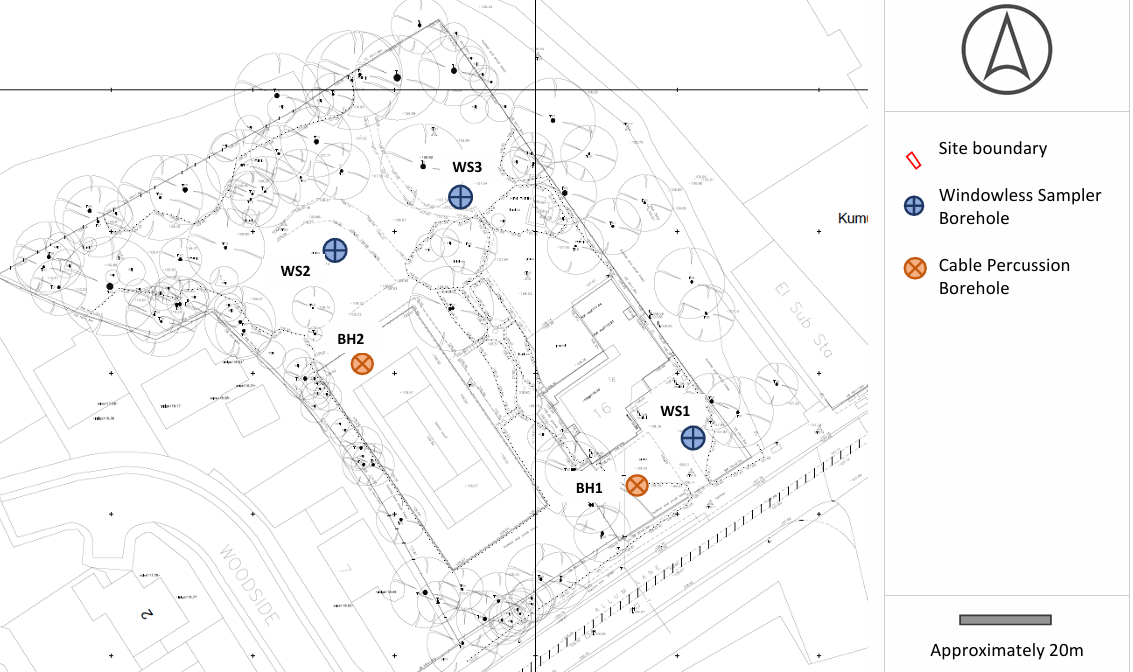
Site investigation bore hole location sites
Proactive Measures to Avoid Significant Costs and Delays
Each of these adjustments comes at a significant cost, and often causes delays, which can escalate in terms of budget and lost business time. For instance, if the foundation needs reinforcement due to unanticipated soft soil, it may necessitate more extensive piling or a complete redesign of the foundation system, a costly consequence that could have been avoided with an initial investigation.
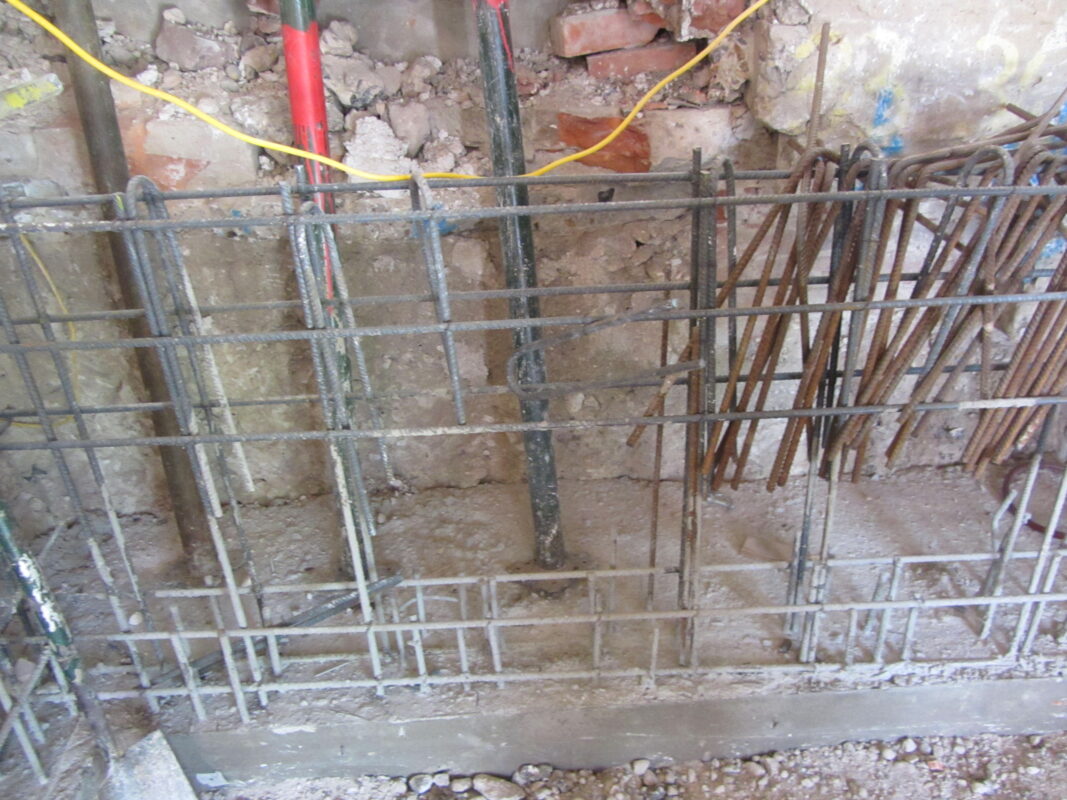
Moreover, overlooking ground investigations can pose serious long-term safety risks, particularly in areas prone to issues like soil erosion or subsidence.
Buildings constructed on inadequately assessed ground are more susceptible to settling or structural shifting, which can lead to cracks, water intrusion, or, in severe cases, structural failure. In commercial settings, where building failure can lead to significant liability issues, the importance of early ground assessments becomes even clearer.
The Role of Drainage Surveys
Drainage surveys are equally important, especially in commercial developments where high usage can increase the risk of drainage system failures.
Drainage issues such as blockages, inadequate capacity, or incorrect drainage falls can lead to water pooling, foundation deterioration, or even flooding, which can damage the building structure and its contents.
These surveys use CCTV cameras and other technology to identify blockages, pipe fractures, and areas requiring reinforcement, providing essential information for designing amendments and extensions of the drainage system.
Ignoring drainage assessments can lead to flooding and water damage, which are both expensive and disruptive to fix. For example, if an improperly assessed drainage system cannot handle peak flows, it may cause water to back up, resulting in interior and exterior water damage. The costs associated with flood remediation, repairs, and downtime for businesses are often substantial, and yet they could have been avoided with a drainage survey at the beginning of the project.
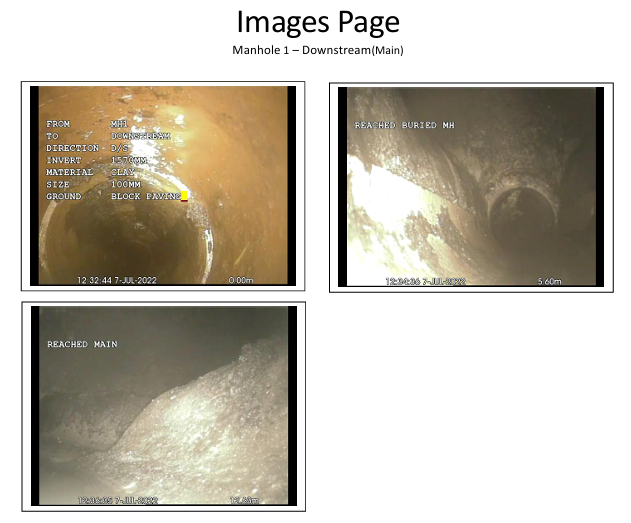
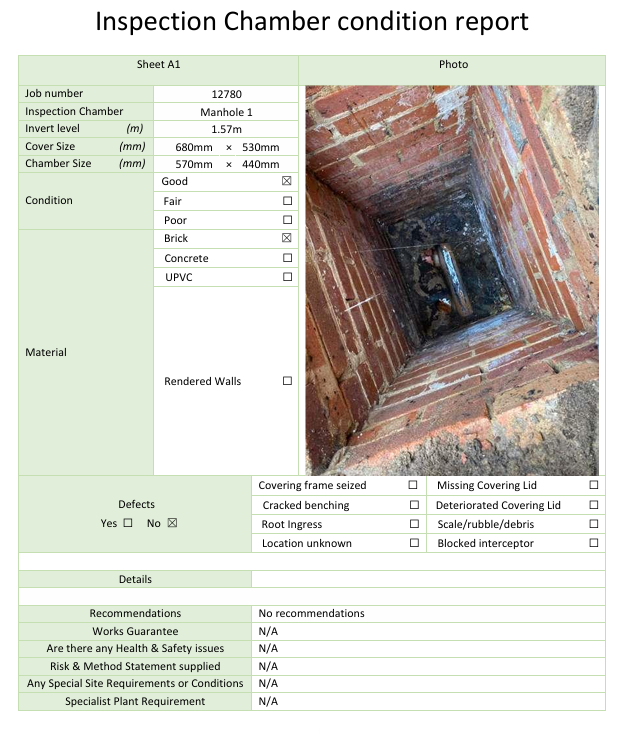
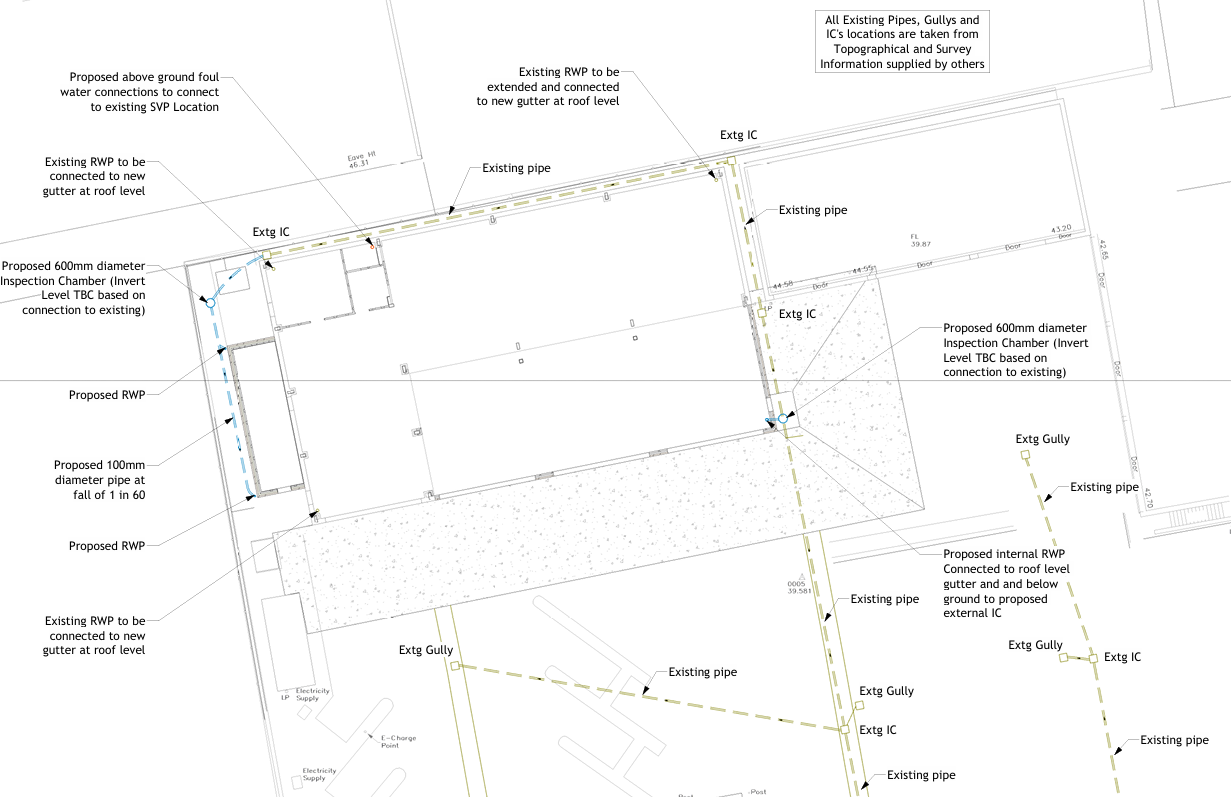
The Cost of Proactive Investment vs Reactive Repair
While ground investigations and drainage surveys represent upfront costs, they are, in effect, cost-saving investments. The additional expenses that arise from site complications during or after construction can far exceed the price of these preliminary studies. Proactively investing in understanding the site’s ground and drainage conditions allows for tailored design solutions and risk mitigation measures, reducing the likelihood of costly and time-consuming surprises.
For commercial building owners, ensuring thorough site assessments aligns with responsible investment. Being prepared for challenges rather than reacting to them keeps construction timelines intact, protects the building’s structural integrity, and minimises future liability.
Conclusion
In summary, ground investigations and drainage surveys are indispensable steps in safeguarding the structural stability and operational longevity of buildings.
By investing in these assessments, building owners can avoid unforeseen complications, mitigate financial risk, and ensure their property’s safety and resilience.
These proactive measures not only save money in the long run but also contribute to a smoother, safer construction process that aligns with the demands of modern, reliable building practices.
We’d love to hear from you!
Would you invest in thorough ground investigations before breaking ground, or take the risk and dive right in?
What’s your approach to balancing upfront costs with long-term security? Share your thoughts with us!
Get in touch
